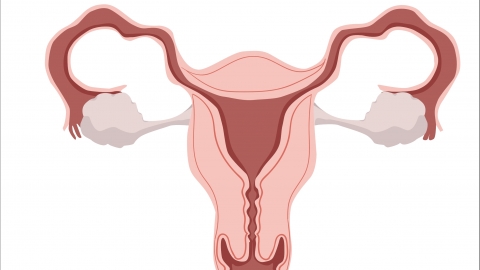Why does the endometrium thicken?
Generally, the main causes of endometrial thickening include cyclical increases in estrogen levels, hormonal fluctuations during puberty or perimenopause, endometrial polyps, endometrial hyperplasia, and polycystic ovary syndrome (PCOS). If abnormal bleeding or other discomfort occurs, it is recommended to seek timely medical treatment at a qualified hospital. Detailed explanations are as follows:
1. Cyclical Increase in Estrogen Levels
During the menstrual cycle, estrogen promotes the proliferation and thickening of the endometrium in preparation for embryo implantation. This is a normal physiological phenomenon. No special treatment is required, and maintaining regular daily routines and avoiding staying up late are sufficient.
2. Hormonal Fluctuations During Puberty or Perimenopause
During puberty, the hypothalamic-pituitary-ovarian axis function is not yet fully developed, while during perimenopause ovarian function declines, both of which may lead to hormonal imbalances and cause endometrial thickening. Emotional regulation, appropriate exercise such as yoga or brisk walking, can help maintain hormonal stability.

3. Endometrial Polyps
Localized endometrial tissue may over-proliferate under excessive hormonal stimulation, forming polyps, which can lead to overall thickening of the endometrium. Small polyps can be treated with medications such as progesterone soft capsules, dydrogesterone tablets, or medroxyprogesterone acetate tablets under a doctor's guidance, while larger polyps may require surgical removal.
4. Endometrial Hyperplasia
Long-term estrogen stimulation without adequate progesterone antagonism can lead to endometrial hyperplasia, characterized by endometrial thickening. Treatment may involve medications such as megestrol acetate dispersible tablets, norethisterone tablets, or levonorgestrel tablets under a doctor's guidance, along with regular follow-up examinations.
5. Polycystic Ovary Syndrome (PCOS)
This condition causes the ovaries to secrete excessive estrogen and increases the conversion of androgens into estrogen, resulting in endometrial thickening. Short-acting combined oral contraceptives such as drospirenone ethinyl estradiol tablets, desogestrel ethinyl estradiol tablets, or ethinyl estradiol cyproterone acetate tablets can be used under a doctor's guidance to regulate hormone levels, along with weight management.
In daily life, it is important to maintain a healthy diet by reducing intake of high-fat and high-sugar foods, maintaining regular作息 patterns and avoiding excessive fatigue, keeping a positive mindset to avoid excessive mental stress, and undergoing regular gynecological examinations for timely detection and management of abnormalities.







